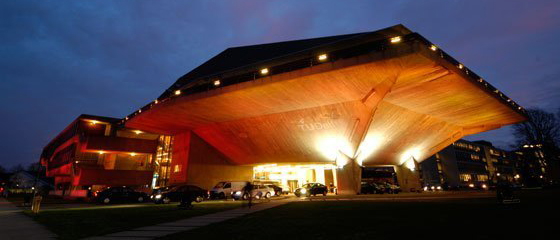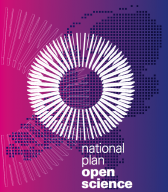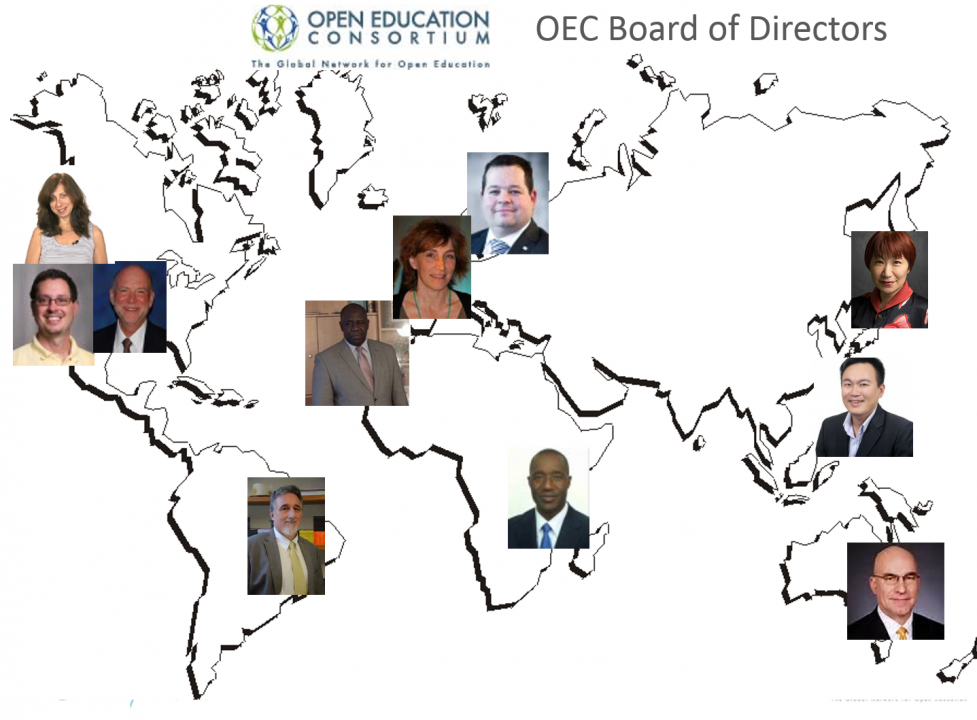This week we published our online magazine about the Open & Online Education at TU Delft. The magazine gives a great overview of our activities and the impact it has had.
Please leave a comment with your feedback on the magazine.
This week we published our online magazine about the Open & Online Education at TU Delft. The magazine gives a great overview of our activities and the impact it has had.
Please leave a comment with your feedback on the magazine.
Next week it is time for the 5th Open Education Week. Again we are organising some events in Delft. Both events are on Friday 31st of March. In the morning we start with the Delft Data Science Seminar and afterwards is our Open Science Seminar.
TU Delft’s Delft Data Science organises an event regarding Online Education. Massive Open Online Courses are an innovative way to make education available for everyone. But how do we keep the quality high with such a large demand for Online Education? Delft Data Science’s researchers and international speakers will share their new findings in this seminar with other academics, partners and with you.
Some of the speakers are Justin Reich of MIT and Marcus Specht of Welten Institute.
Open Science concerns openness in the entire cycle of practicing science, increasing access and transparency in both research, education and valorisation, based on the principle of circulating knowledge by sharing, reusing and collaborating. During this Seminar we will share and discuss examples how openness in education and research can support TU Delft's mission to contribute to a sustainable society for the 21st century and challenge you to think about what open education and open research means for you in your daily practice. More info on our website.
Both events are open for TU Delft employees and externals. There is one registration form for both events.
At the Open Education Global conference I organised an Action Lab on MOOCs. The session is focused on answer the questions of the audience. This time the audience consisted of a newby, a couple of instructional designers, a couple of researchers and some others. This focused the discussion and slides I showed.
Below is the slide deck I used for the session.
Tonight at the gala diner of the OEGlobal Conference the official announcement was made that the 2018 conference will be in Delft. After a fierceful selection process my proposal to host the conference in Delft was selected by the board.
Although it means a lot of work for me and my team, I think it is a great opportunity for the Netherlands and Delft. There are a lot of activities currently happening and this conference in April 2018 can further focus and showcase this to the rest of the world.
The conference will be from 24-26 April 2018 in the TU Delft Conference Centre. All participants can enjoy kingsday on the 27th of April (bring your orange shirt).

Delft has a historic, picturesque city centre with world famous unique selling points such as the famous painter Johannes Vermeer (girl with the pearl), William of Orange and Delft blue pottery. Due to the central location in Randstad, Delft is easily accessible by car, train and public transport. In 40 minutes you are in Delft from Schiphol Airport. Within a hour you can be in the four big cities Rotterdam, The Hague, Amsterdam or Utrecht.
Last week the Dutch National Plan Open Science was presented. The plan was written by a team led by my colleague Wilma van Wezenbeek (TU Delft Library Director). The key ambitions of the plan are: 
Important is that the plan is not only focusing making publications open access, but also change the evaluation and reward system for researchers.
The Open Education Leadership Award of Excellence is presented to an individual who has shown strong leadership in the field of Open Education.
It is awarded by the Open Education Consortium to recognize truly exceptional work and dedication to the ideals of Open Education. Previous winners are leaders such as Nicole Allen, Peter Smith, Anka Mulder, Fred Mulder.
This year two awards are granted in this category:
Jet Bussemaker, Minister of Education, Culture and Science for the Netherlands since 2012 and major advocator of Open Education. Her support of openness has served as an example for governments around the world.
During her 4 years as minister of education, Jet Bussemaker has positioned open education as an important strategy of her policy. She started a structural granting programme, supporting bottom-up initiatives for universities. During the EU Presidency of the Netherlands (first half of 2016) she placed open education on the agenda and organized a big event during the Open Education Week.
The Dutch Minister of Education has made major policy changes towards open education. By 2025 all educational resources should be open and available via an (inter)national platform. She has also made available a grant programme for open education with a yearly budget going to 2 mln euro. In 2015, eleven projects were approved and in 2016, twelve projects were approved.
Dr. Bakary Diallo, is the rector of the African Virtual University, a pan-African project with 35 partner universities. He has served two terms on the OEC board of directors and has been treasurer during that time. His service to the global open education movement has come from his lifelong commitment to the expansion of educational opportunities.
Through Dr. Diallo’s leadership, the AVU has developed OER-based courses and degrees in math and science teacher education and in computer science. Through his advocacy for open educational resources and his broad international network, Dr. Diallo has shone a bright light on open education, on our global consortium, and on the opportunities that expanded access to higher education will bring to underserved communities throughout the world.
Both winners trully deserve this award. They will receive the award at the upcoming conference in Cape Town 8-10 March. You can still register and attend this great conference!
Last week Harvard and MIT published an interesting report about four years of MOOCs. They explored 290 Harvard and MIT online courses, a quarter-million certifications, 4.5 million participants, and 28 million participant-hours. That is a bit more than TU Delft, we currently have 1.2 million enrolments of 821,283 unique accounts, 75 courses, 31 thousand certificates, but our first MOOCs didn't start until September 2013. In this blog post I guide you through their findings and have tried to add some comparisons with our DelftX data.
The Year of Open is a global focus on open processes, systems, and tools, created through collaborative approaches, that enhance our education, businesses, governments, and organizations. At its core, open is a mindset about the way we should meet collective needs and address challenges.
The Year of Open is community-led campaign, coordinated by the Open Education Consortium (of which I'm a board member). The focus is on the all kinds of open, such as open education, open access, open science, open data, open government, open licenses, open source software. This year we will work together with many organisations to promote openness in all its aspects.
Are you organising an open event, let us know via this form. On the website YearofOpen.org we publish all events and share interesting content.
Last Friday our Credits for MOOCs project opened for students. From this week on our students can join a number of MOOCs and get credits for them. There are no additional costs for them.
The first 12 MOOCs for credits will be provided by Ecole Polytechnique Fédérale de Lausanne (EPFL), University of Queensland, Australia National University and TU Delft and they will start in February 2017. During the summer a broader variety of courses will be made available by universities such as Hong Kong University of Science and Technology and Rice University. Other top 100 universities have said they are keen to join.
We started this project in the fall of 2015 and after many conference calls, presentations, meetings and hard work of my colleagues and our partners we have managed to open it for enrolments. When MOOCs are infiltrating the university curriculum you have to pass many hoops and bypass many obstacles.
Our students can find all the information about the process and which MOOCs are offered on this website.
One important aspect is that we asked all the instructors of the MOOCs under what conditions they would offer credits for their MOOCs. For most MOOCs this means that there is an additional assessment requirement. That can be like a proctored exam, a skype interview, or a paper. This is also the reason why we have limited the number of students that can credits. Off course any learner can enroll in these MOOCs.
All current exchange programmes are based of students to temporary move to another city. A great opportunity for students, but for many not possible due to time or financial constraints. With this programme we created a kind of virtual exchange programme. Our students can do courses of other top universities from our campus in Delft. They can learn across borders.
I think this offers a great opportunity for our students. It offers them courses that we as a technical university don't offer and it gives them flexibility.
Since 2013 I'm member of the Board of Directors of the Open Education Consortium. The consortium is a global network of educational institutions, individuals and organizations that support an approach to education based on openness, including collaboration, innovation and collective development and use of open educational materials. The Open Education Consortium is a non-profit, social benefit organization registered in the United States and operating worldwide.
The Board of Directors of the Open Education Consortium is composed of elected representatives from member institutions. The Board of Directors provides strategic direction and fiscal oversight to the organization. Board members are elected for a term of 2 years with the possibility to get reelected once.

A typical board member is leader in open education in his/her institute and region. They are part of the leadership or management of the university or department (provost, dean, rector, etc). Off course you should have sufficient time available for the board membership and have the support of your organisation to cover the travel expensises. There are two online board meeting and two meetings in person per year and you are expected to attend all four.
Primary responsibilities of the Board of Directors include:
New board member are officially elected at our global conference in the spring, next one in March 2017 in Cape Town. The elections are in the two months before the conference, so we are currently open for nominations. If you are interested in running for the board, please contact our Executive Director Mary Lou Forward or me.
Do you want to nominate your self or someone else, please go to our website. (deadline January 17, 2017 12:00 UCT)